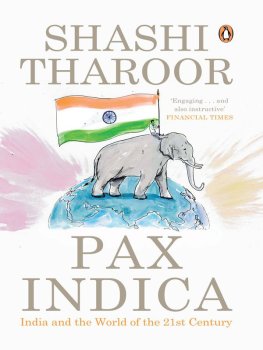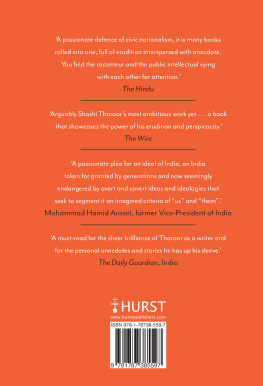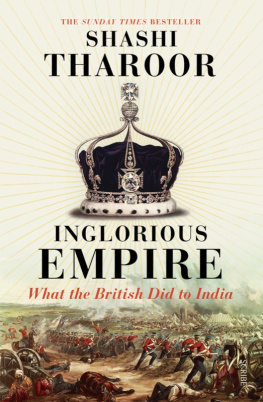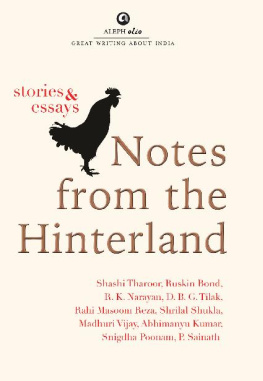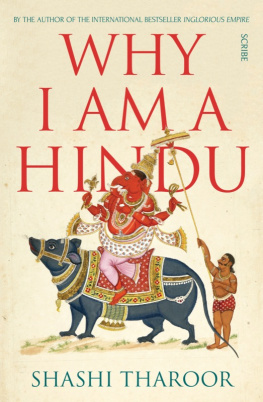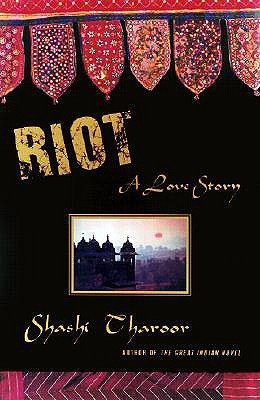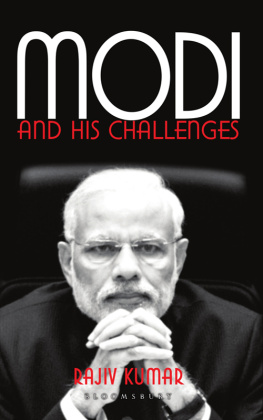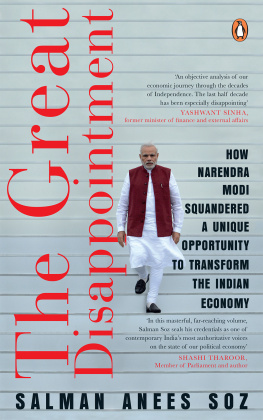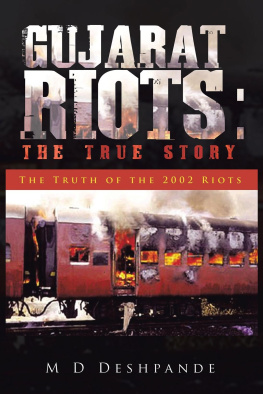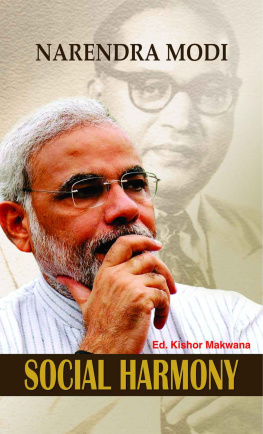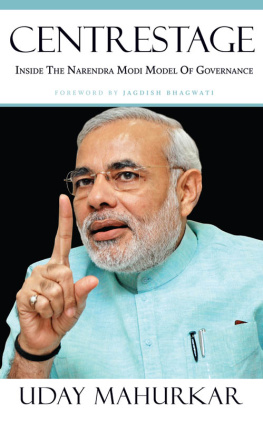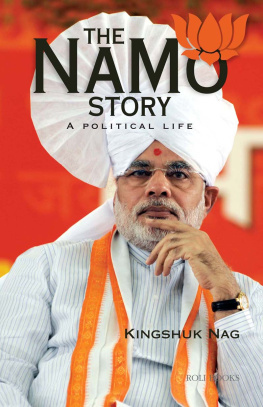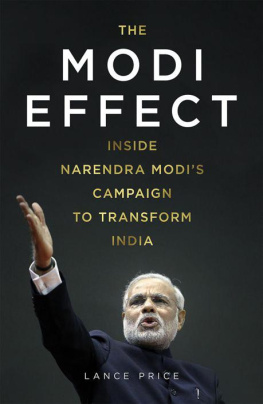THE
PARADOXICAL
PRIME MINISTER
ALSO BY SHASHI THAROOR
NON-FICTION
Why I Am a Hindu
An Era of Darkness: The British Empire in India
India Shastra: Reflections on the Nation in Our Time
India: the Future is Now (ed.)
Pax Indica: India and the World of the 21st Century
Shadows Across the Playing Field: 60 Years of India-Pakistan Cricket (with Shahryar Khan)
India (with Ferrante Ferranti)
The Elephant, the Tiger, and the Cell Phone: Reflections on India in the 21st Century
Bookless in Baghdad
Nehru: The Invention of India
Kerala: Gods Own Country (with M. F. Husain)
India: From Midnight to the Millennium and Beyond Reasons of State
FICTION
Riot
The Five Dollar Smile and Other Stories
Show Business
The Great Indian Novel
ALEPH BOOK COMPANY
An independent publishing firm
promoted by Rupa Publications India
First published in India in 2018
by Aleph Book Company
7/16 Ansari Road, Daryaganj
New Delhi 110 002
Copyright Shashi Tharoor 2018
All rights reserved.
The author has asserted his moral rights.
The views and opinions expressed in this book are the authors own and the facts are as reported by him, which have been verified to the extent possible, and the publishers are not in any way liable for the same.
While every effort has been made to trace copyright holders and obtain permission, this has not been possible in all cases; any omissions brought to our attention will be remedied in future editions.
No part of this publication may be reproduced, transmitted, or stored in a retrieval system, in any form or by any means, without permission in writing from Aleph Book Company.
ISBN: 978-93-88292-17-7
1 3 5 7 9 10 8 6 4 2
For sale in the Indian subcontinent only
This book is sold subject to the condition that it shall not, by way of trade or otherwise, be lent, resold, hired out, or otherwise circulated without the publishers prior consent in any form of binding or cover other than that in which it is published.
To
The People of India
Who deserve better
CONTENTS
INTRODUCTION
I told you so.
In 2014, I published India Shastra , a volume of essays about contemporary India. In it I examined the then new prime minister of India, Narendra Modi, six months into his assumption of office. This is what I wrote then:
There is a paradox at the heart of Mr Modis ascent to the prime ministership. His speeches and rhetoric appear to recognize, and harness, a vital shift in our national politics from a politics of identity to a politics of performance. Yet he has ridden to power at the helm of a party, the BJP, which is ill-suited to the challenge of delinking Indias polity from the incendiary issue of religious identity that it had built its base on. And his rise to office has empowered the khaki-shorts wearing cultural organization, the Rashtriya Swayamsevak Sangh (RSS), whose views on every subjecteconomics, politics, history, culture, morality, gender relations, even matters of appropriate dress or conductare totally illiberal. Mr Modi has built his appeal by putting the focus on what the Indian people manifestly needmore development, better governance, wider socio-economic opportunities. But having won an election by attracting voters to these themes, he has given free rein to the most retrograde elements in Indian society, who are busy rewriting textbooks, extolling the virtues of ancient science over modern technology, advocating protectionism and self-reliance against free trade and foreign investment, and asserting that Indias identity must be purely Hindu. Mr Modi cannot be oblivious to this fundamental contradiction, but he can only resolve it by jettisoning the very forces that have helped ensure his electoral victory. I am not sure whether such a fundamental contradiction can even be resolved, and in that may lie the seeds of Mr Modis future failure.
Four years later, that failure is clearly apparent. The story of these last years is a story of missed opportunities and dashed hopes, of waiting for achhe din that never came, of seeing expectations raised to the heights by lofty rhetoric, only to come crashing down in the face of depressing reality. These years have been an era of disappointment for believers, of vindication for the sceptics, and of frustration for all who want India to thrive.
In writing such a book, of course, I cannot pretend to be a neutral observer. I am a Member of Parliament from the Opposition Congress party, and there will be some who will inevitably make the well, he would say that, wouldnt he? argument about the analysis in this book. In extenuation I can only point out that I have tried over Mr Modis years in office to be as fair to him as possible, incurring the wrath of many of my own party colleagues by accepting his invitation to join the first group of prominent Indians asked to endorse his Swachh Bharat (Clean India) campaign, and being at the receiving end of much political opprobrium for my initial willingness to give him the benefit of the doubt. Part of this willingness was the hope I shared with most Indians to see a changed man between the campaigner and the victornow that he was actually PM, perhaps he was prepared to govern for all Indians? And part of it was respect for the electoratethey had elected him and, as a democrat, I felt an obligation to respect their collective judgement enough to see if Modi would live up to the voters faith in his words and promises.
As I show in this book, he did not. But I do not regret that initial suspension of criticism, though in some ways it was the worst of both worlds, since I got the backs up of the government for my subsequent criticisms anyway, while provoking the suspicions of some on my side who alleged I was planning to switch my allegiance to Mr Modi (something that anybody with the slightest familiarity with my more than three-decade-long paper trail of trenchantly liberal opinions should have known was impossible). The middle of the road, after all, is the place where you get hit by traffic from both directions.
One of the things the twenty-first century is supposed to have taught us is that few things in life are black and white, that much of human reality involves complex, alternating shades of grey. The one field, however, that is exempt from this simple principle is Indian politics. Our political life and discourse are the last refuge of Manichaeism, the doctrine that divided the world into mutually incompatible ideas of good and evil.
Consider the evidence from just one episode: in mid-2015, I found myself launching and discussing a book by the scholar and columnist Raja Mohan, Modis World , on the NDA governments foreign policy. Since what was expected was an overall assessment, I began by crediting the prime minister for the personal energy he brought to the conduct of policy, with his wide-ranging travels which had made a positive impression on the countries receiving him, and for having leveraged Indias soft power as an instrument of our diplomacy through such initiatives as International Yoga Daythough I qualified this by observing that the pursuit of the Guinness World Records was unnecessarily tacky and unworthy of a government. I then went on to point out that the Modi government had not only continued the foreign policy of the UPA but done so by reversing most of the BJPs positions in Opposition, on issues ranging from the Indo-US nuclear deal to the Bangladesh Land Boundary Agreement. Even the emphasis on economic diplomacy with which the prime minister was being credited, I said, was nothing more than the implementation of what I have dubbed the Manmohan Doctrine, which posits that the overriding objective of Indian foreign policy is the economic transformation and development of India. I added, for good measure, that where the Modi government had departed from its predecessor it had embarrassed itself and the nationpointing, in detail, to the yo-yo like pendulum swings of our policy pronouncements and actions on Pakistan and Israel.


